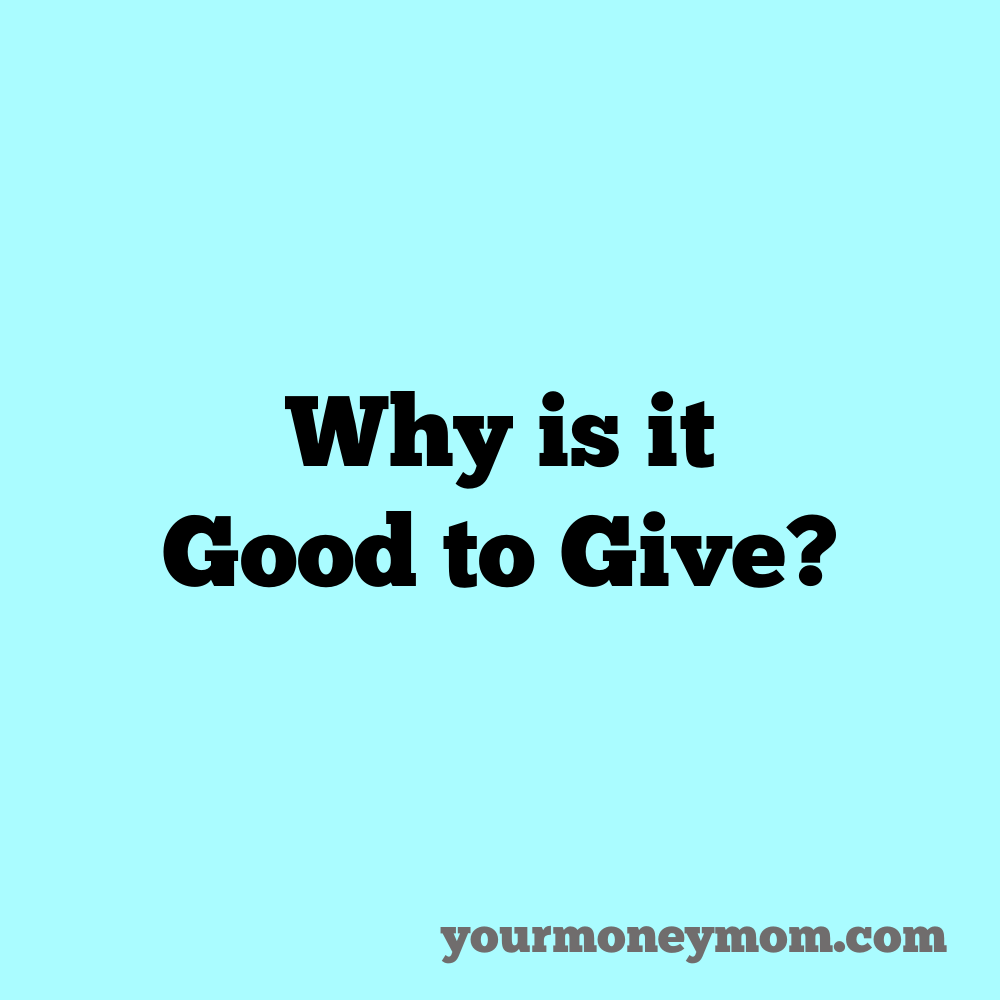
Since this is a focus on generosity, I shared a post (originally published on Clarus Money, my coaching site), that is all about generosity:
Takeaways from this challenge:
- Every religious tradition recommends giving.
- Giving makes us happier.
- Giving helps keep things in perspective.
The expression “It is more blessed to give than receive” is at least 2,000 years old. (It is from the Book of Acts in the New Testament)(Acts 20:35)
A dusty platitude? Not necessarily.
Yes, giving money or time helps the community and world we live in. But modern research increasingly shows that giving is better than receiving, in a host of ways.
Virtually all religious traditions recommend giving to charity, whether a 10 percent tithe or some other amount to a church or other charity, particularly ones that serve those in need directly.
It may seem counterintuitive—wouldn’t a person be happier spending money on a nice pair of boots or a great vacation? But generosity, especially in giving money away, actually makes people happier and better.
Read on to find out why:
Any Kind of Giving Makes People Happier
Social psychologist Elizabeth Dunn has done various research projects showing that giving to others, whether it is money or something else, makes people happier.
Dunn’s TED Talk about this is an excellent introduction to the concepts:
People who give to charity have a happiness boost that is the equivalent of doubling your income.
Prosocial Acts like Helping, Giving, and Comforting All Help Improve Mood
Giving to others, whether it is of time, money, or (as Dunn found while studying toddlers) even goldfish crackers, is called “pro-social behavior.” It helps connect us more to our community or our world.
Scientists suggest three main types of prosocial behavior exist: helping, giving, and comforting. All promote wellbeing, for all are involved in having a generous nature.
One Type of Giving is Best for You and Others
One sobering fact researcher Dunn found: only about a third of people give to charity within any month.
Dunn herself mentioned how she rarely gave to charity, even after her research, because it didn’t make her happy. She did not have a practice of giving.
Then she discovered the “Group of Five” program in Canada (where she lives) that allows five families to combine resources to sponsor a refugee family in Canada. Dunn found that this direct connection with people much more fulfilling and happiness boosting than just writing a check to a charity.
Tzedakah
Dunn’s experience tracks with the centuries-old Jewish tradition of tzedakah, or almsgiving. The medieval Jewish rabbi Maimonides outlined eight levels of giving, from less perfect to most altruistic, that are still used to this day. Here are the eight, from least to most spiritually beneficial:
- 8. Giving grudgingly, with sadness
- 7. Giving pleasantly, but less than you can afford
- 6. Giving generously, but only when asked
- 5. Giving before being asked
- 4. Giving where the recipient knows the giver, but the giver does not know the recipient
- 3. Giving where the giver knows the recipient, but the recipient does not know the giver.
- 2. Giving anonymously—neither giver nor recipient know the other
- 1. Helping someone become self-sufficient
Dunn’s experience of sponsoring a family helped her experience the highest level of tzedakah — “helping someone become self-sufficient,” Seeing and helping how she was making a difference in the lives of the members of the refugee family gave her more satisfaction than, as she says, “writing a check.”
But all the levels are giving, and one shouldn’t discount the benefits to society. People would be happier practicing generosity in any one of these levels, or some combination, rather than nothing.
Keep “Simply” Giving Cash
There’s nothing wrong, and a lot good, with “simply” giving cash (or writing checks, but so few people do that anymore!) to charity.
Here’s why:
*charities need the money, and can do much good with it.
There are charities doing good in every community, and some national and international charities that help people worldwide. Money can make a big difference in the lives of those who need help, from food to shelter and more. The people who work full-=time for such organizations often know how best to help the people they serve, so unrestricted cash gifts help them do the most good.
*it is healthy to practice detachment when it comes to money.
There is nothing wrong with a focus on your finances or your money. Of course it is important to pay attention to and improve your own money situation.
The ability to manage your money well, save for goals and the future, and understand your finances, is all good. And that can help you give more to those in need in your family or your community.
Managing money is not an end. Having money allows freedom for a lot of things, including helping others.
*you can’t take it with you.
Or to put it another way, consider the down-home proverb, “there’s no trailer hitch on a hearse.”
You literally cannot take it with you, so it is much better to plan to do some good with it, both when you are alive and when you are gone.
*giving money (cash!) is often the most efficient way to allow a charity to do good.
Efficiency is not the only thing that is important in giving. Being generous with others sometimes can be inconvenient, messy, and less than ideal.
There is nothing wrong with attempting to be effective and efficient when we give.
In fact, food charities have asked donors for cash instead of canned goods, since these groups can source more food for less money due to the networks of food banks.
What are your thoughts on giving? Do you feel better when you give?



